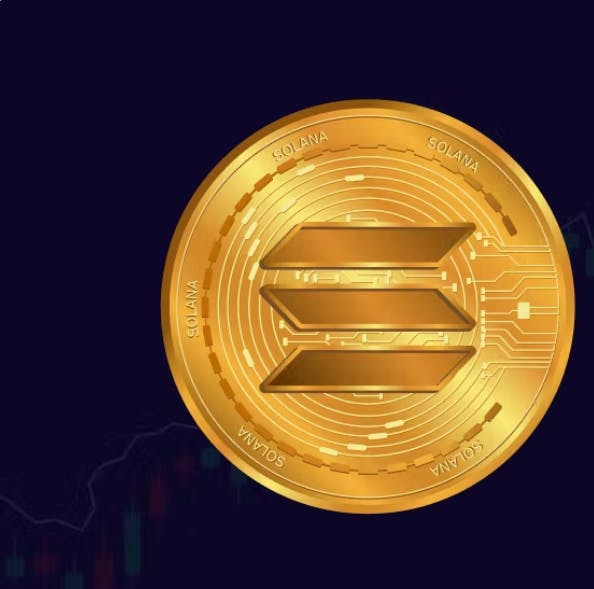Crypto Scoop: Crypto Stakeholders Remain Optimistic Despite Bear Market
Crypto Scoop
Back to blog
Yellow Card
2022-11-18
Crypto Scoop
On this page
Stakeholders reaffirm faith in the future of cryptocurrencies while the crypto community recovers from the FTX crash.
The FTX crash toppled top cryptocurrencies down in its wake. While the crypto community recovers from the bear market, in this edition of the crypto scoop, we review:
- Stakeholders' position on the FTX crash
- Solana USDC and USDT deposits temporal suspension
- South Africa university’s crypto initiative
- Tuvalu Island’s metaverse initiative
Crypto Stakeholders Continue to Be Optimistic Despite a Bear Market
Following the FTX crash, the firm filed for bankruptcy after suffering one of the worst hacks in the crypto space, which resulted in a loss of over $600 million. Since then, Sam Bankman-Fried, CEO of FTX, has stepped down from his position.
FTX's new CEO, John Ray, noted that he had never in his career seen "such a complete failure" of corporate controls" when giving a scathing assessment of the poor management practices of his predecessor that led to the crash of FTX. Genesis and BlockFi are some crypto service providers that were also affected by what is being called the FTX contagion. Celebrities like NFL star Tom Brady were also caught in the crossfire following a lawsuit for promoting FTX.
Binance CEO Changpeng "CZ" Zhao noted that although the FTX crash "set the crypto space back a few years, he believes regulators will scrutinise this industry much, much harder, which is probably a good thing". Billionaire Mark Cuban also explained that the FTX crash "wasn't a crypto blow up but rather a banking blow up caused by lending to the wrong entity, misvaluations of collateral, arrogant arbs, followed by depositor runs."
Cuban explained he invests in crypto because he believes smart contracts will significantly impact the creation of valuable applications. Elon Musk, CEO of Tesla and Twitter, also noted that he believes Bitcoin will make it, but it might be a long winter.
Chris Maurice, CEO and co-founder of Yellow Card, asserted confidence in the future and power of crypto to change Africans' lives. He explained that situations like the fall of FTX provide a turning point for everyone in the industry, calling for more transparency and trust.
In fact, the famous author of the best-selling book Rich Dad Poor Dad, Robert Kiyosaki, noted that he is never worried about the price of the bitcoin. He explained, "I am a bitcoin investor," and when the price of bitcoin hits a new low, he is excited at the opportunities it provides.
The President of El Salvador, Nayib Bukele, also announced that El Salvador would buy 1 BTC daily. The Central American nation began to purchase 1 BTC per day on November 17, 2022. El Salvador currently holds over 2,381 bitcoins.

Crypto exchanges Suspend USDT and USDC deposits on Solana
Solana (SOL) recorded one of the worst hits following the FTX crash. This prompted crypto exchanges like Binance, OKX, and Bybit to suspend Solana USDT and USDC deposits on their platforms temporarily.
Following this, USDC issuer Circle tweeted that USDC on Solana is operating normally and that there are no problems with issuing or redeeming the stablecoin. "USDC is always redeemable 1 for 1 for US dollars. Any amount. Any time. For Free. Always," the firm added.
South African School Offers Crypto Education Course
Centennial Schools, a school in Sandton, Johannesburg, South Africa, launched a 10-module course that teaches students about the real-world uses of blockchain technology and cryptocurrencies. According to Shaun Fuchs, founder and CEO of Centennial Schools, "by exposing our students to this course, we are futureproofing them by giving them the skillset they require for life outside of school."
In order to deliver the course material, the school collaborated with CoinEd, an education provider that incorporates cryptocurrency and blockchain courses at educational institutions. Kreean Singh, a co-founder of coinEd, says teaching students how to use cryptocurrency safely will help them in their financial lives, online safety, and future careers.
Tuvalu Island pursues metaverse initiative to protect cultural heritage.
The island nation of Tuvalu declared its intention to create a digital representation of itself to save its history from being erased by climate change. Simon Kofe, the nation's foreign minister, stated at the COP27 climate summit on November 15 that the nation is searching for alternate strategies to safeguard its cultural heritage from climate change's effects, including rising sea levels.
The island nation of Tuvalu in the South Pacific made the decision to use Web3 technology to ensure the future survival of its culture and society. Therefore, Tuvalu Island will be recreating itself in the metaverse.
Disclaimer: This article is for information purposes only and should not be construed as legal, tax, investment or financial advice. Nothing contained in this article constitutes a solicitation, recommendation, endorsement or offer by Yellow Card to buy or sell any digital asset. There is risk involved in investing or transacting in digital assets, please seek professional advice if you require one. We do not assume any responsibility or liability for any loss or damage you may incur dealing with digital assets. For more information on Digital Asset Risk Disclosure please see - Risk Disclosure.


